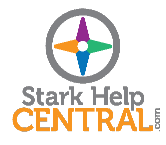Prescription opioids & heroin
Opiates and opioids are similar, highly addictive drugs. Opiates, including heroin, morphine and codeine are made from the opium poppy plant. Opioids is a broader term that includes opiates and synthetic opioids such as prescription painkillers like hydrocodone and oxycodone, as well as fentanyl and methadone.
Opioids are easy to come by for kids, teens and adults. Most physicians prescribe these synthetic opiates for the right reasons, but some people increase their own doses when it’s not medically necessary. If opioids are not properly stored at home, kids can easily access them to use themselves or to sell.
Because opioid use has turned into an epidemic, you should know the signs of an overdose and what to do in that situation.
If someone you know uses opiates/opiods, you should have an overdose kit on hand and know how to use it.
If someone is in immediate danger, call 911. Otherwise, here are some resources to prevent overdose and to support someone who is using opioids.
Crisis Hotlines
If you or someone you know is in crisis, call or text the hotline numbers below for immediate, confidential support 24 hours a day.
People who are under the influence of prescription opioids or heroin may display the following symptoms:
- Borrows or steals money for drugs
- Confusion and trouble concentrating
- Constricted pupils
- Euphoria and noticeable elation
- Fatigue and trouble sleeping
- Headaches, nausea and vomiting
- Increased body temperature and sweating
- Irregular bowl movements
- Noticeable drowsiness
- Pill bottles frequently found in trash
- Seeks multiple prescriptions from multiple doctors
- Slowed breathing and loss of consciousness
- Stress and anxiety
- Unpredictable behavior and mood swings
- Withdraws from friends and family
References
Opiates and opioids are similar, highly addictive drugs. Opiates, including heroin, morphine and codeine are made from the opium poppy plant. Opioids is a broader term that includes opiates and synthetic opioids such as prescription painkillers.
Many different drugs are considered opioids, including:
- Buprenorphine (also used to treat opioid use disorder)
- Codeine
- Fentanyl
- Heroin
- Hydrocodone
- Methadone (also used to treat opioid use disorder)
- Morphine
- Oxycodone
References
There is no guarantee that someone using opioids will not overdose. Some groups of people are at a higher risk. They include:
- Those who mix drugs with alcohol, benzodiazepines or antidepressants
- Those with a lowered tolerance for processing drugs
- Those who have had a previous nonfatal overdose
- High-dose opioid prescription user (greater than 80mg morphine equivalent)
- Methadone prescription use
- Illicit opiate use
- Opioid use and smoking, COPD, emphysema, or other respiratory illness or obstruction
- Opioid use and kidney dysfunction or lover disease
- Opioid use and HIV/AIDS
- Opioid use and concurrent alcohol or other drug use
- Opioid use and mental health medications or sedating medications
- People who have a short period of sobriety
- Veterans and injured workers
- New clients of methadone or other medication assisted treatment programs for addiction or pain management
Do not do the following in the case of an overdose:
- Do not allow the victim to “sleep it off”
- Do not put the victim in a bath or shower
- Do not inject the victim with anything
- Do not leave the victim alone
- Do not treat the victim with home remedies that do not work and often postpone potentially life-saving medical treatment
- Do not postpone calling 911 while cleaning up
Do the following:
- Stay with the person
- Call 911
- Give Narcan
- Give rescue breaths
It can be difficult to recognize an overdose. Signs could include the following:
- Slow, shallow breathing
- Choking or snore-like gurgling sounds
- Tiny, constricted pupils
- Falling asleep or loss of consciousness
- Pale, blue or cold skin, lips, face and hands
- Slow, erratic pulse
- May complain of elevated body temperature
- May behave irrationally or seem confused
- Vomiting
- Limp body
- Unresponsive to outside stimuli like loud noises or someone lightly shaking them
- May not respond to painful stimulation such as rubbing knuckles across his/her sternum
Project DAWN
Stark County Health Department offers naloxone kits via Project Dawn.
Stark Heroin Epidemic
Learn where to go and what to do if you or a loved is suffering from heroin or prescription opiate use.
Overdose Prevention and Response Toolkit
SAMHSA’s updated Overdose Prevention and Response Toolkit provides guidance to a wide range of individuals on preventing and responding to an overdose.
Xylazine
National Harm Reduction Coalition info sheet on xylazine.
Stimulant Overamping Basics
National Harm Reduction Coalition guide on stimulant overamping.

